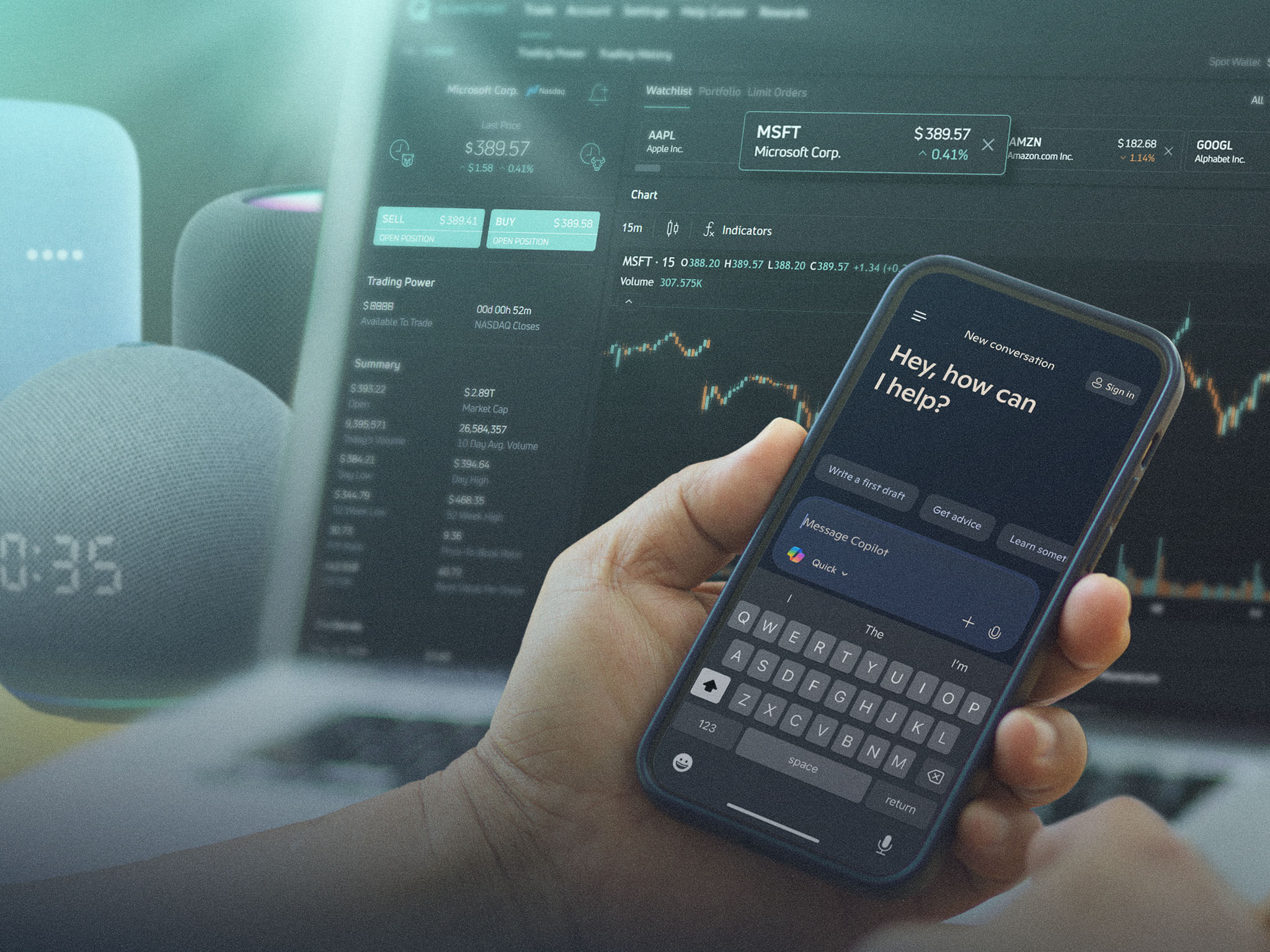Microsoft (NASDAQ: MSFT) lags behind rivals including Amazon (NASDAQ: AMZN), Apple (NASDAQ: AAPL) and Google (NASDAQ: GOOGL) in some key spheres of consumer tech, but the software giant is hoping a revamped Copilot app can give it an edge in the heated race now underway for smart AI. It’s a direct assault on Alexa and Siri and comes as the industry increasingly focuses on so-called “agents” that can perform tasks on their own, without human oversight.
“Everyone is about to have a world expert in their pocket, a teacher, a creative sounding board, a project manager, a researcher, a chief of staff,” Microsoft AI chief Mustafa Suleyman said earlier this month at an event where he unveiled new, consumer-focused Copilot features that can help with everything from shopping to apartment hunting. “All of the metaphors just don’t really seem to do it justice. It’s a truly magical amount of capability, working for you.”
Suleyman, a tech entrepreneur who previously co-founded both DeepMind and Inflection AI, joined Microsoft last year and has since poached scientists from competitors including Google. The stakes are obviously high, as he’s previously predicted that conversational AI will become the next web browser and search engine—both areas where the company has seen market share evaporate. A successful Copilot could help claw some of that back, especially as Apple has notoriously struggled to bring smarter capabilities to Siri.
Memory that grows
Besides personal podcasts that can be created instantly, the new Copilot—which Suleyman described as an AI Companion that can be used for everything from dog training to travel planning—has been imbibed with contextual memory that will grow with users over time and never forget an interaction. He said it was all part of chatbot evolution that’s gone from IQ to EQ (emotional intelligence) to now AQ—an actions quotient, or the “ability to actually make things happen on your behalf.”
“You’ll never need to start over with your personal Copilot,” Suleyman continued, noting that the memory went far beyond just birthday reminders. “Right now, we’re only just seeing the very first glimmers of what this is going to feel like in practice.”
Microsoft, which gets most of its revenue from enterprise offerings including Microsoft 365 and Azure cloud, has seen its shares decline 6.2% over the past year. Companies with more end-consumer touchpoints have fared better over the same period, with Amazon declining 0.8%, Google rising 3.3% and Apple gaining 17%.
Fierce competition
With the number of digital voice assistants more than doubling since 2020 and now outnumbering actual humans on this planet Earth, it’s clear why Microsoft wants in on the action that’s unifying smart speakers, chatbots, PCs and smartphones around just a few competing platforms. It won’t be an easy feat, however, as its Cortana product—recently replaced by Copilot—was perceived as being far less intelligent than Siri, Alexa and Google Assistant, and used much less. Microsoft, meanwhile, lacks widely used smartphone software like Android or iOS and is well behind Google when it comes to search and browser market share. The battle for new features has been fierce, with Apple expected to upgrade Siri later this year and Amazon spending a large part of its latest letter to investors on AI and promising that the Alexa+ service it’s rolling out will be a game changer.
“Alexa+ is not only comparably intelligent to the leading chatbots, but can take a plethora of real actions for you,” Amazon CEO Andy Jassy wrote. “She can play music, play video, move media from one of your devices to another, set alarms and timers, control your smart home, order across hundreds of millions of ecommerce items, make reservations for restaurants or Ubers, order concert tickets, alert you when your favorite artist announces a tour, find a plumber to fix your sink, and memorize whatever you’ve done on Amazon.”
The verdict is still out as to just how useful virtual assistants will actually become, but as Microsoft battles it out with Amazon, Apple and Google—in addition to chatbot offerings like OpenAI’s ChatGPT and xAI’s Grok—the real winners may be AI infrastructure providers like CoreWeave (NASDAQ: CRWV) and chipmakers including NVIDIA (NASDAQ: NVDA). Regardless of who ends up on top, someone will have to do all the actual processing in data centers, and the latest contest for intelligent agents is just another sign that demand for generative AI is unlikely to slow down anytime soon.




Comments